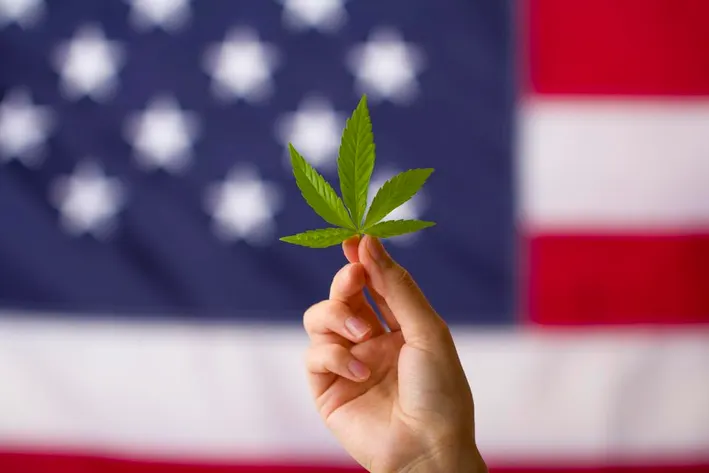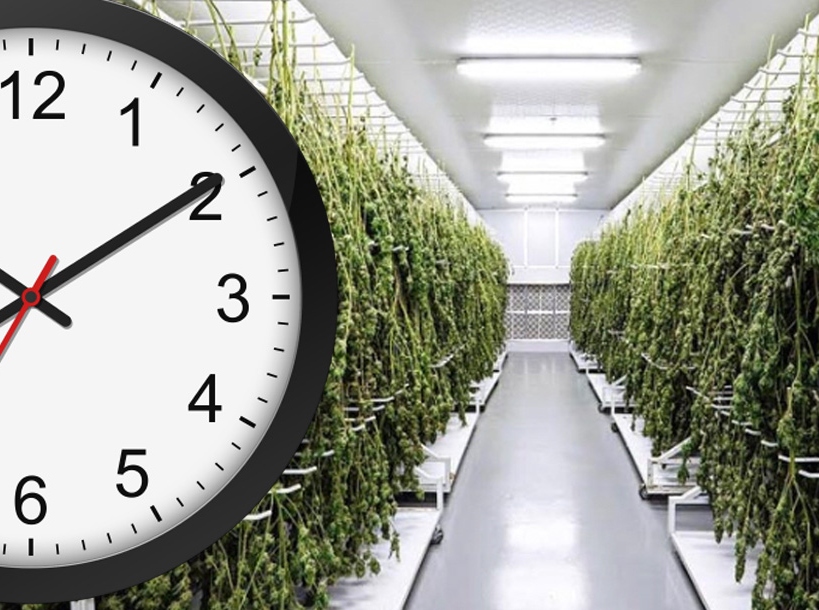The US Department of Health and Human Services (HHS) has recommended that the DEA acknowledge the medical value of cannabis by reclassifying it as a Schedule III drug.
Last August, President Biden finally made good on his promise to rethink the country’s antiquated weed laws by ordering the HHS to reevaluate the criminal scheduling of cannabis. One year later, the HHS has completed its review and officially recommended that the DEA reclassify cannabis from Schedule I of the Controlled Substances Act (CSA) to Schedule III.
The CSA’s Schedule I drug category is reserved for supposedly dangerous drugs that have no accepted medical use, like heroin, “bath salts,” and all psychedelics. The HHS believes cannabis should be moved to Schedule III, a category reserved for medically-valid drugs that still have some potential for abuse. This category includes steroids, commonly-prescribed opioids like codeine and hydrocodone, and ketamine, which was recently legalized as a treatment for depression.
Moving cannabis to Schedule III would remove several financial restrictions that make it difficult for state-legal cannabis businesses to turn a profit. This reclassification would finally exempt weed businesses from 280E, an IRS tax code that blocks businesses that handle Schedule I or II drugs from taking standard business deductions on their taxes. Cannabis businesses would finally be able to open bank accounts, get loans, and even list on the US stock market. The rule change would also make it easier for researchers to conduct clinical studies on cannabis.
But although this is a step in the right direction, it’s only a small step. Recreational use of Schedule III drugs remains illegal, so anyone participating in a state-legal adult-use market would still be violating federal law. Schedule III drugs can be legally used when prescribed by a doctor, but only if they are approved by the FDA. And that agency has refused to approve or regulate any cannabis-related products, including CBD – which has been federally legal for 5 years now. Because of this, federal law enforcement could still technically prosecute people for using or selling medical marijuana as well.
“Schedule III maintains the federal criminalization of marijuana possession, even for those participating in state-level medical marijuana programs,” explained BOWL PAC founder Justin Strekal to Marijuana Moment. “Should the Biden Administration move forward with this, it is not fulfilling their campaign promise to decriminalize.”
“The goal of any federal cannabis policy reform ought to be to address the existing, untenable chasm between federal marijuana policy and the cannabis laws of the majority of US states,” NORML Deputy Director Paul Armentano said in a statement. “Rescheduling the cannabis plant to Schedule III of the US Controlled Substances Act fails to adequately address this conflict, as existing state legalization laws — both adult use and medical — will continue to be in conflict with federal regulations, thereby perpetuating the existing divide between state and federal marijuana policies.”
The HHS’ historic recommendation is not binding, so the DEA is not technically required to implement it. The anti-drug agency has proved time and time again that they are out of step with reality, so it’s entirely possible that they may simply ignore the recommendation. DEA officials have also argued that removing cannabis from Schedule I or II would be a violation of international drug treaties.
The potential implications of this recommendation are so uncertain that advocates are still encouraging Congress to implement cannabis reform by an act of law. “This recommendation by HHS is just the first part of the scheduling review process started under the direction of President Biden last fall, so it remains just as urgent and critical for congressional action on SAFE Banking and other cannabis policy reforms on the federal level,” said National Cannabis Roundtable (NCR) Executive Director Saphira Galoob to Marijuana Moment.











